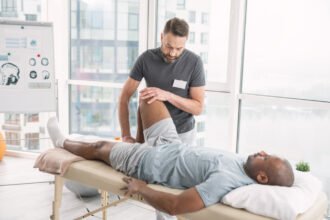The use of Motrin, Aleve and other non-steroidal anti-inflammatory drugs (NSAIDS) is associated with erectile dysfunction, according to a study by scientists affiliated with Kaiser Permanente.
The apparent link surprised the scientists. They had hypothesized that the commonly used pain-killers would actually reduce the risk of erectile dysfunction since NSAIDS protect against heart disease, which has in turn been linked to the troubling condition.
To reach their surprising conclusion, Steven Jacobsen and colleagues used data from Kaiser’s HealthConnect EHR, an associated pharmacy database, and self-reports about NSAID use and erectile dysfunction from an ethnically diverse population of 80,966 men between the ages of 45 and 69.
After controlling for age, ethnicity, race, body mass index, diabetes, smoking status, hypertension, high cholesterol and coronary artery disease, the scientists found that men who used NSAIDS at least 3 times per day for at least 3 months were 2.4 times more likely to experience erectile dysfunction than those who did not consume them on a regular basis. The link persisted across all age categories.
Remarkable in its own right was the finding that overall, 29% of the men in the study reported some level of erectile dysfunction.
The authors emphasized that their findings do not prove that NSAID use causes erectile dysfunction. For example, the study findings could have been confounded by factors not considered by the scientists (such as subclinical disease or the severity of the comorbid conditions that were studied), and the chance that NSAID use was actually an indicator for other conditions that caused erectile dysfunction.
In addition, the scientists recognized that their study had some limitations. These included an inability to temporally link NSAID use and the development of ED, and possible selection bias.
As a result, they cautioned men against discontinuing NSAIDs based solely on the findings of their study. “There are many proven benefits of non steroidals in preventing heart disease and for other conditions. People shouldn’t stop taking them based on this observational study. However, if a man is taking this class of drugs and has ED, it’s worth a discussion with his doctor,” Jacobsen said in an interview.
The write-up appears in the Journal of Urology.






